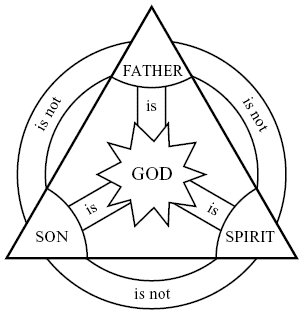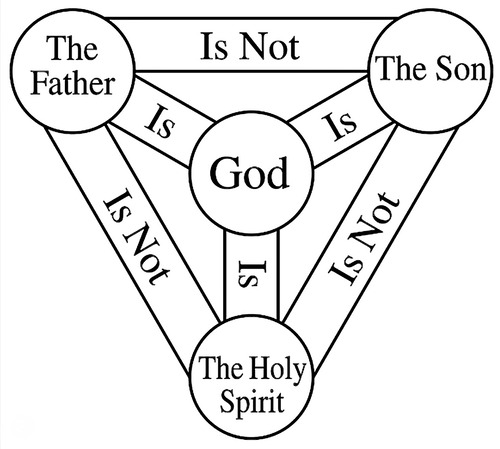Is Satan Stupid? Why He Keeps Fighting a War He Can’t Win
It’s a question that lurks in the back of every believer’s mind but rarely gets voiced in polite theological company: Is Satan actually stupid? For millennia, the fallen angel has persisted in his rebellion against an omnipotent God, seemingly oblivious to the mathematical impossibility of his plans to succeed. He’s had minor victories—deceiving nations, corrupting churches, leading souls astray—but does success with the reprobate actually get to his head? Why does an intelligent being continue fighting a war with a predetermined outcome?
WHEN CUNNING MEETS CORRUPTED REASON
Is Satan stupid? Scripture doesn’t portray Satan as unintelligent. Quite the opposite—he masquerades as “an angel of light” (2 Corinthians 11:14), demonstrating sophisticated strategy and cunning manipulation. His temptation of Christ reveals tactical brilliance, targeting humanity’s typical vulnerabilities with surgical precision. Yet intelligence and wisdom aren’t the same thing.
True wisdom, according to Scripture, begins with the fear of the Lord (Proverbs 9:10). Satan possesses natural intelligence but lacks the spiritual wisdom that comes only through submission to God’s authority. James 3:15 describes earthly wisdom as “demonic”—it may be clever, but it leads to destruction because it operates apart from divine truth.
Sin corrupts reason itself. When Satan chose pride over submission in his original rebellion (Isaiah 14:12-15), he didn’t just commit an evil act—he fundamentally corrupted his ability to think clearly about reality. Pride blinds even the most intelligent beings to obvious truths, creating a feedback loop of self-deception that grows stronger with each act of rebellion.
GOD’S SOVEREIGNTY: SATAN AS UNWITTING SERVANT
Here’s where Reformed theology provides its most devastating insight: Satan’s apparent opposition to God’s plan actually serves God’s ultimate purposes. The Westminster Confession teaches God’s eternal decree encompasses all events—including Satan’s rebellious acts. Far from being an independent agent threatening divine sovereignty, Satan operates only within divinely permitted boundaries.
Consider the pattern throughout Scripture. In Job’s account, Satan must ask permission before touching God’s servant. And even then, he operates within strict limits. Joseph’s brothers sold him into slavery with evil intent, yet God used their wickedness to save nations from famine (Genesis 50:20). Judas’ betrayal was both genuinely evil and prophetically necessary for our redemption.
The cross itself represents Satan’s greatest strategic blunder. Thinking he’d achieved ultimate victory by orchestrating Christ’s death, Satan unknowingly facilitated humanity’s salvation. As Luther memorably put it, Satan serves as God’s “attack dog on a leash”—he may bark and bite, but only within the boundaries his Master allows.
This divine sovereignty doesn’t diminish the reality of spiritual warfare, but it does place it in proper perspective. Every apparent victory Satan achieves advances God’s redemptive purposes. His success with the reprobate doesn’t represent failure in God’s plan—it reveals the just condemnation that highlights the wonder of divine grace toward the elect.
THE PSYCHOLOGY OF HOPELESS REBELLION
So is Satan stupid to persist? The answer lies in understanding the nature of unregenerate will, even at the angelic level. Total depravity affects all created beings who rebel against God, hardening hearts against repentance and truth.
Unlike us, angels who sinned receive no offer of atonement (Hebrews 2:16). Satan’s rebellion is irreversible, his condemnation certain. But rather than leading to resignation, this certainty intensifies his rebellion. Having nothing left to lose, he doubles down on his opposition, driven by the same pride that initiated his fall.
Success with the reprobate does indeed feed Satan’s delusion. Each soul led astray, each church corrupted, each believer discouraged provides temporary validation of his methods. But these tactical victories blind him to the strategic reality: he’s only accomplishing what God has already decreed for His own glory.
Satan operates with a fundamentally temporal perspective, focused on immediate gains while remaining blind to eternal outcomes. He sees believers stumble and assumes victory, failing to grasp that God uses even our failures to conform us to Christ’s image. He witnesses church scandals and imagines he’s damaging God’s reputation, not realising these events often purify the bride of Christ and demonstrate the need for divine grace.
THE CERTAINTY OF ULTIMATE DEFEAT
Scripture is by no means ambiguous about Satan’s final destination. Revelation 20:10 declares his eternal torment in the lake of fire. Romans 16:20 promises believers “the God of peace will soon crush Satan under your feet.” Christ’s resurrection already secured the victory; Satan’s defeat isn’t a future possibility but a present reality awaiting final implementation.
Reformed theology’s emphasis on God’s immutability provides unshakeable confidence in these promises. God cannot change His mind, revoke His decrees, or fail in His purposes. What He has promised will certainly come to pass, regardless of Satan’s continued thrashing.
This assurance transforms how believers approach spiritual warfare. We don’t fight for victory—we fight from victory. Satan’s opposition, however fierce, cannot alter the predetermined outcome of his rebellion.
LIVING IN LIGHT OF SATAN’S FOLLY
Understanding Satan’s intelligent foolishness provides profound comfort during trials. When circumstances seem dark and evil appears triumphant, may we remember the enemy’s greatest successes only advance God’s redemptive purposes. His apparent intelligence masks fundamental irrationality—he’s literally fighting against omnipotence itself.
Satan’s persistence in hopeless rebellion serves as the ultimate contrast to the wisdom of faith. While he demonstrates how intelligence without submission leads to destruction, believers exemplify how simple trust in God’s sovereignty leads to eternal victory.
The question isn’t whether Satan is stupid—it’s whether we’ll learn from his folly. In a universe governed by an absolutely sovereign God, rebellion isn’t just evil; it’s ultimately irrational. No scheme, however clever, can thwart the purposes of Him who works all things according to the counsel of His will.
Satan keeps fighting because sin has blinded him to this fundamental truth. Believers, on the other hand, rest in it.
IS SATAN STUPID? RELATED FAQs
Did Satan know he’d lose when he first rebelled? Michael Horton argues Satan’s original rebellion was driven by pride rather than strategic calculation. While Satan possessed significant knowledge as a created being, his pride blinded him to the certainty of defeat against an omnipotent Creator. John MacArthur suggests Satan’s intelligence, though great, was always finite and thus incapable of fully comprehending God’s infinite wisdom and power.
- How do we explain Satan’s apparent successes throughout history? RC Sproul taught Satan’s “victories” are actually God’s common grace being temporarily withdrawn to accomplish divine purposes. Contemporary scholar John Frame emphasises apparent satanic triumphs serve God’s decree by demonstrating human depravity, magnifying divine grace, and ultimately bringing greater glory to God. These successes are real but limited, operating within boundaries that serve redemptive history rather than thwarting it.
- If God controls Satan, is God responsible for evil? Reformed theologian Wayne Grudem distinguishes between God’s permissive decree and His active causation—God ordains that evil occur without being its efficient cause. Contemporary scholar John Piper explains this through “double predestination”: God actively elects some to salvation while passing over others, allowing their sinful nature to run its course. Satan remains morally responsible for his rebellion even though it falls within God’s sovereign plan.
Why doesn’t God simply destroy Satan now instead of allowing continued opposition? John Calvin believed God permits Satan’s continued existence to test and purify His people, much like a refiner’s fire. Modern Reformed theologian Sinclair Ferguson argues Satan’s ongoing opposition serves to demonstrate God’s patience, justice, and the gradual unfolding of redemptive history. The delay showcases God’s mercy in providing time for the elect to come to faith while ensuring Satan’s judgement is seen as perfectly just.
- Do demons share Satan’s delusion about potentially winning, or do they know better? Demonologist Clinton Arnold suggests fallen angels, like their leader, are subject to the same spiritual blindness that accompanies rebellion against God. Reformed scholar Thomas Schreiner argues demons may intellectually acknowledge God’s power (James 2:19) while remaining volitionally committed to rebellion due to their corrupted nature. Their opposition stems from malice rather than hope of victory, driven by desire to inflict maximum damage before their inevitable doom.
- How does Satan’s persistence relate to human sin and the doctrine of total depravity? Theologian JI Packer believed Satan’s continued rebellion illustrates how sin blinds rational creatures to obvious truth. David Wells argues Satan demonstrates the ultimate endpoint of total depravity—complete moral inability to choose good or acknowledge truth. His persistence mirrors how unregenerate humanity continues in patterns of sin despite clear evidence of their futility, showing that rebellion against God is fundamentally irrational.
What practical difference should understanding Satan’s futility make in spiritual warfare? Tim Keller emphasised recognising Satan’s ultimate powerlessness should eliminate fear-based approaches to spiritual warfare while maintaining vigilance. Contemporary scholar Jerry Bridges taught believers should fight defensively (putting on spiritual armour) rather than offensively, since Christ has already won the victory. Understanding Satan’s futility doesn’t lead to complacency but to confident resistance rooted in assured triumph rather than anxious uncertainty.
IS SATAN STUPID? OUR RELATED POSTS
Editor's Pick

The Christian Sabbath: Why Did Sunday Replace Saturday?
Consider this: God-fearing Jews who’d faithfully observed Saturday Sabbath for over a thousand years suddenly began gathering for worship on [...]

Did the Early Christians Worship Jesus? The Biblical Evidence
It was a startling transformation: Jewish fishermen who'd spent three years following this itinerant carpenter from Nazareth now begin to [...]

If Jesus is Messiah, Why Aren’t ALL Messianic Prophecies Fulfilled?
If Jesus is truly the Messiah, why hasn't world peace arrived? Why do Jews still face persecution? Why isn't the [...]

When Courage Fails: Will I Be Forgiven If I Deny Christ in Persecution?
The rooster crowed, and Peter remembered. In that devastating moment, the apostle realised he’d just done the unthinkable—three times he’d [...]

What Makes a Godly Dad? 5 Biblical Principles Fathers Need
Modern culture sends fathers mixed messages. Be strong but sensitive. Be involved but not overbearing. Lead but don’t dominate. With [...]

What Makes a Godly Mom? A Scripture-Backed Guide
In our culture’s confusion about gender roles and parenting, the timeless question remains: what makes a godly mother? While secular [...]

Paul’s Mandate for Men: Headship Or Servant Leadership? Or Both?
Modern Christianity has fallen into a trap. We've created an either/or battle between "headship" and "servant leadership," as if these [...]

Should We Stop Using Male Pronouns for God? Why Do We Say No?
A friend of ours arrived eagerly at his first theology class in seminary. But he quickly discovered something troubling: the [...]

Did Old Testament Law Force Women to Marry their Rapists?
**Editor’s Note: This post is part of our series, ‘Satan’s Lies: Common Deceptions in the Church Today’… Viral misinformation abounds [...]

From Danvers To Nashville: Two Statements, One Biblical Vision
30 years separate the Danvers Statement on Biblical Manhood and Womanhood (1987) and the Nashville Statement on Human Sexuality (2017). [...]
SUPPORT US:
Feel the Holy Spirit's gentle nudge to partner with us?
Donate Online:
Account Name: TRUTHS TO DIE FOR FOUNDATION
Account Number: 10243565459
Bank IFSC: IDFB0043391
Bank Name: IDFC FIRST BANK






